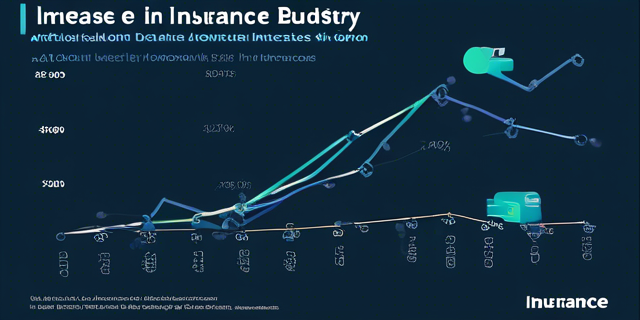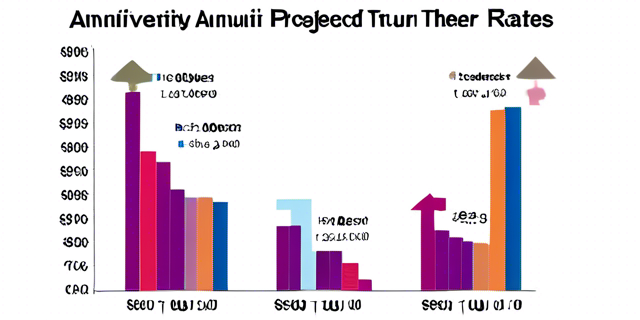The Definitive Guide to Health Insurance for Self-Employed Individuals 2024

Being self-employed has its perks—you’re your own boss, you set your own schedule, and you have the freedom to pursue your passions. However, one of the downsides is that you’re responsible for securing your own health insurance coverage, which can be a daunting task. Fear not, because in this comprehensive guide, we’ll explore the ins and outs of health insurance for self-employed individuals, ensuring you have the knowledge to make informed decisions about your healthcare needs.
Understanding the Importance of Health Insurance
Before we dive into the nitty-gritty of health insurance options for the self-employed, let’s address the elephant in the room: why do you need health insurance in the first place? The answer is simple—medical expenses can quickly spiral out of control without proper coverage, potentially leaving you in financial ruin.
Imagine this scenario: you’re a freelance graphic designer, happily working from your home office, when suddenly, you experience a medical emergency. Without health insurance, you could be facing astronomical hospital bills, putting your hard-earned savings and your business at risk. That’s a situation no one wants to find themselves in, right?
The Affordable Care Act and Self-Employed Individuals
Thanks to the Affordable Care Act (ACA), also known as Obamacare, self-employed individuals have access to a range of health insurance options. The ACA established healthcare marketplaces, or exchanges, where you can compare and purchase health plans from private insurers.
One of the key benefits of the ACA for self-employed individuals is the availability of premium tax credits. These tax credits can help make health insurance more affordable by reducing the monthly premium costs based on your income level. It’s like having a personal discount code for your healthcare needs!
Individual Health Insurance Plans

Individual health insurance plans are perhaps the most straightforward option for self-employed individuals. These plans are purchased directly from insurance companies or through the healthcare marketplace. Here are a few things to keep in mind when exploring individual health insurance plans:
1. Deductibles and Out-of-Pocket Costs
When selecting an individual health insurance plan, pay close attention to the deductibles and out-of-pocket costs. A deductible is the amount you’ll need to pay out of pocket before your insurance coverage kicks in. Out-of-pocket costs refer to the expenses you’ll be responsible for even after meeting your deductible, such as copays and coinsurance.
Finding the right balance between affordable monthly premiums and manageable out-of-pocket costs is crucial. Remember, the lower the deductible and out-of-pocket costs, the higher the monthly premium, and vice versa.
2. Network Coverage
Another important factor to consider is the network coverage offered by the individual health insurance plan. Some plans have a narrow network, which means they only cover medical services from a limited number of healthcare providers. Other plans offer a broader network, giving you more flexibility in choosing your doctors and hospitals.
If you have a preferred healthcare provider or facility, make sure they’re included in the plan’s network to avoid paying higher out-of-network costs.
Group Health Insurance Plans

While individual health insurance plans are a viable option, self-employed individuals may also have access to group health insurance plans. These plans are typically offered through professional associations, trade groups, or organizations catering to small businesses and self-employed individuals.
1. Professional Associations and Trade Groups
Many professional associations and trade groups offer group health insurance plans to their members. For example, if you’re a self-employed graphic designer, you may be able to join a professional association for graphic designers and take advantage of their group health insurance offerings.
These plans often provide more comprehensive coverage and better rates than individual health insurance plans due to the collective bargaining power of the group.
2. Small Business Health Insurance Plans
Even if you’re a sole proprietor or have a small team, you may still qualify for small business health insurance plans. These plans are designed for businesses with a limited number of employees and can offer competitive rates and coverage options.
It’s important to note that small business health insurance plans typically require at least one full-time employee other than the business owner. However, some states and insurers may have different eligibility criteria, so it’s worth exploring your options.
Health Savings Accounts (HSAs) and High-Deductible Health Plans (HDHPs)
For self-employed individuals looking to save on healthcare costs while still maintaining coverage, Health Savings Accounts (HSAs) and High-Deductible Health Plans (HDHPs) can be a powerful combination.
1. High-Deductible Health Plans (HDHPs)
HDHPs are health insurance plans with lower monthly premiums but higher deductibles. This means you’ll pay more out of pocket before your insurance coverage kicks in, but your monthly costs will be lower.
While the high deductibles may seem daunting at first, HDHPs can be an excellent choice when paired with a Health Savings Account (HSA).
2. Health Savings Accounts (HSAs)
An HSA is a tax-advantaged savings account that allows you to set aside money for eligible medical expenses. The contributions you make to your HSA are tax-deductible, and the money in the account grows tax-free. Additionally, any money you withdraw from your HSA to pay for qualified medical expenses is tax-free as well.
To be eligible for an HSA, you must be enrolled in a qualified HDHP. The funds in your HSA can be used to cover deductibles, copays, and other out-of-pocket expenses, providing a safety net for unexpected medical costs.
COBRA and Short-Term Health Insurance
If you’re transitioning from a traditional employer-sponsored health insurance plan to self-employment, you may have the option to continue your coverage through COBRA (Consolidated Omnibus Budget Reconciliation Act) or explore short-term health insurance plans.
1. COBRA
COBRA allows you to temporarily continue your employer-sponsored health insurance coverage after leaving your job. This can be a useful bridge until you secure a new health insurance plan as a self-employed individual.
However, it’s important to note that COBRA coverage can be expensive, as you’ll be responsible for paying the full premium cost, plus an administrative fee. Additionally, COBRA coverage is typically only available for a limited period, typically 18 to 36 months.
2. Short-Term Health Insurance
Short-term health insurance plans are designed to provide temporary coverage for periods ranging from one month to one year. These plans can be a viable option if you need immediate coverage while you explore more long-term solutions.
It’s crucial to understand that short-term health insurance plans typically have more limitations than traditional health insurance plans. They may exclude coverage for pre-existing conditions, preventive care, and certain essential health benefits.
Tax Deductions and Self-Employed Health Insurance
One of the significant advantages of being self-employed is the ability to deduct health insurance premiums as a business expense. This can help offset the costs of your health insurance and provide valuable tax savings.
When you’re self-employed, you can deduct 100% of your health insurance premiums, including premiums paid for your spouse and dependents, as long as they’re not eligible for an employer-sponsored health plan. This deduction is available whether you itemize your deductions or take the standard deduction.
It’s important to keep detailed records of your health insurance premiums and any other eligible medical expenses throughout the year to ensure you can take full advantage of this deduction when filing your taxes.
Conclusion
Navigating the world of health insurance as a self-employed individual can be challenging, but with the right information and resources, you can find a plan that fits your needs and budget. Remember to explore all your options, from individual health insurance plans and group plans through professional associations or trade groups, to HSAs and HDHPs, and even short-term health insurance plans.
Ultimately, securing adequate health insurance coverage is an investment in your well-being and the longevity of your self-employed endeavors. By taking the time to understand your options and taking advantage of tax deductions, you can ensure that you and your loved ones are protected against unexpected medical expenses, allowing you to focus on what truly matters: growing your business and pursuing your passion.
FAQs
- Can I deduct my health insurance premiums as a business expense? Yes, as a self-employed individual, you can deduct a portion of your health insurance premiums as a business expense on your tax return. Consult with a tax professional for specific guidelines and requirements.
- What happens if I don’t have health insurance as a self-employed individual? Without health insurance, you may be subject to a tax penalty (depending on the year and your specific circumstances). More importantly, you’ll be responsible for paying the full cost of any medical expenses out-of-pocket, which can be financially devastating in the event of a major illness or injury.
- Can I enroll in a health insurance plan through the Marketplace at any time? Generally, you can only enroll in a Marketplace plan during the annual open enrollment period or if you qualify for a Special Enrollment Period due to a qualifying life event. However, some states may have extended or year-round enrollment periods, so it’s essential to check the rules in your area.
- What is a high-deductible health plan (HDHP), and how does it work with a Health Savings Account (HSA)? An HDHP is a health insurance plan with a higher deductible than traditional plans, meaning you’ll pay more out-of-pocket expenses before your insurance coverage kicks in. However, HDHPs are often paired with HSAs, which allow you to contribute pre-tax dollars to an account that can be used to pay for qualified medical expenses, including your deductible.
- Can I get health insurance through a professional association or trade organization? Many professional associations and trade organizations offer group health insurance plans for their members. These plans, known as Association Health Plans (AHPs) or Professional Association Health Plans, can provide more affordable coverage options than individual plans. Check with the associations or organizations relevant to your industry to see if they offer such plans.
Remember, this guide is just the beginning of your journey towards securing quality health insurance as a self-employed professional. Embrace the process, stay informed, and don’t hesitate to seek professional advice when needed. Your health and well-being are invaluable assets, and investing in them is an investment in your long-term success.








